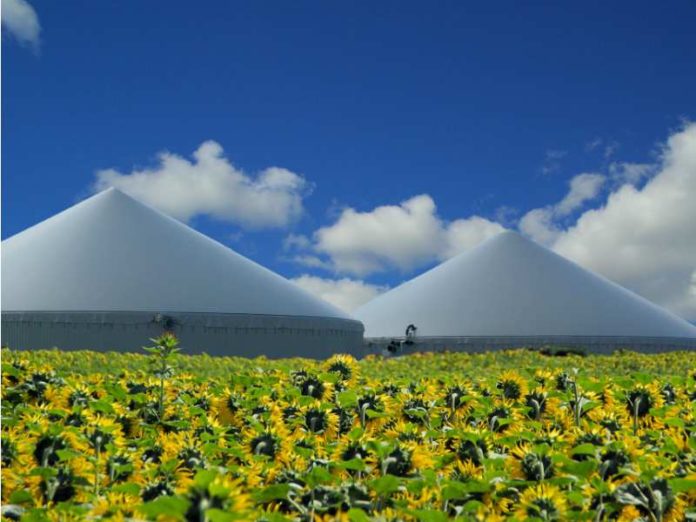The core aim of the Digital Global Biogas Cooperation (DiBiCoo) project is to prepare markets in emerging countries for the uptake of sustainable biogas technologies and projects.
This programme consists of five demo cases which are all to be guided up to the investment stage through the joint elaboration of technical concepts, an impact assessment – including socio-economic and environmental aspects – and the development of business models for financially viable projects.
Ann-Kathrin van Laere, DibiCoo project coordinator for German development agency GIZ explained there are various activities planned and currently being implemented in support of this aim, among them the Market Uptake Program.
Have you read?
Recycling carbon to make a new kind of soap
“Through this guidance the demo cases can access and use the European expertise and knowledge on biogas project development and concurrently develop country-specific solutions. Thus these five demo cases shall serve as lighthouse projects within the respective country and even beyond and demonstrate the potential of biogas projects in helping to mitigate GHG emissions, increasing the share of RE and managing bio-waste – challenges all five countries are currently facing,” said van Laere.
The five promising project opportunities in South Africa, Ghana, Indonesia, Argentina and Ethiopia will serve as examples for how to set up reliable biogas projects in cooperation with European technology providers. This is meant to support the development of a healthy biogas sector in the developing countries.
The projects were selected out of 52 project ideas submitted during an open application process in 2020. “The South African demo case focuses on utilising organic municipal waste and wastewater to produce biomethane and inject it into the local micro gas grid to supply sustainable, green gas to the surrounding area,” said van Laere.
DiBiCoo is about setting up a global network to create biogas business
The DiBiCoo cooperation and networking project is comprised of several components and targeted outcomes, with the overall goal being to enable information exchange and knowledge transfer, and to facilitate cooperation among stakeholders in Europe and the 5 partner countries. It will:
- Compile and share information on the biogas markets in Europe and the partner countries
- Develop a Digital Biogas Matchmaking Platform for networking, matchmaking and information exchange which acts as a database for interested stakeholders
- Implement a Capacity Building and Networking Programme which consists of various digital and non-digital training formats and events
- Support the development of five demo cases and thereby generating and disseminating best practices on biogas project implementation in the five partner countries
Van Laere explained successful programme completion would be reached when DiBiCoo has established a sustainable and vast network of stakeholders around the world who are all working together to tackle challenges such as mitigating greenhouse gas emissions, increasing the share of renewable energy globally and managing bio-waste.
Have you read?
Using waste management to widen the job circle
“Although the project has a terminal date, DiBiCoo in fact aims to have an impact even after the project’s end, through established networks and cooperation and through the Digital Biogas Matchmaking Platform which will be available after DiBiCoo is successfully completed. This will hopefully facilitate networking and matchmaking between international stakeholders and potential business partners beyond the project’s life span,” she said.
Biogas sector in South Africa is ticking along
Dwight Rosslee, director of Selectra, one of South Arica’ early market entrants into the biogas sector, explained biogas could play an important role in the country’s renewabled energy mix. “It can be produced from a wide range of feedstocks, including organic waste. The energy-rich gas has a wide range of applications such as direct combustion to produce electricity, water and space heating, cooking and drying. It may also be used to fuel internal combustion engines and fuel cells,” said Rosslee.
Selectra received funding for the EU’s Horizon 2020 Research and Innovation programme and was one of the founding members of the South African Biogas Industry Association in 2013. Rosslee thinks DibiCoo’s Digital Matchmaking Tool and Business Design Training sub-programmes will greatly help South African biogas developers, especially new market entrants.
“Selectra is one of the DiBiCoo consortium members and as such we have greatly expanded our biogas knowledge by interacting with the other consortium members and project participants. It is a great learning opportunity,” said Rosslee.
Have you read?
Côte d’Ivoire to get Africa’s first grid tied biomass power plant
Ethiopia is not wasting time either
Dr Bogale Wondwossen of DiBiCoo project staff for iceaddis (Ethiopia’s first innovation hub and tech startup incubator) said the consulting and training wing of the hub is facilitating the DiBiCoo Project reach the Ethiopian biogas sector.
“iceaddis is involved in several renewable energy consultancy services that can help the society and country at large,” said Wondwossen.
Small scale biogas plants are gaining traction in Ethiopia where the technology is mostly used for cooking purposes. “The intention of iceaddis is to help biogas developers and stallholders to use biogas not only for cooking purposes, but for CHP [combined heat and power], electricity and bottling,” explained Wondwossen.
DiBiCoo has so far helped deliver nine seminars on different aspect of biogas in Ethiopia and the sharing of information from the various project countries is helping to inform their own framework for the biogas sector. “Networking is very important for iceaddis to grow,” said Wondwossen.
